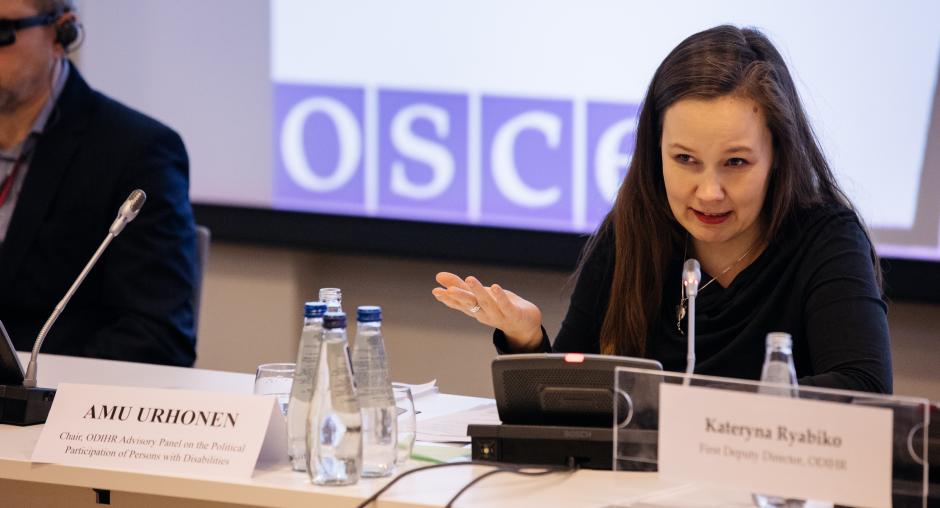ODIHR event highlights how crises affect disabled people disproportionately

Crises such as health emergencies and armed conflicts have a disproportionate impact on people with disabilities. This issue and examples of positive practice that ensure disability inclusion amid the COVID-19 pandemic and the ongoing armed conflict in Ukraine were discussed at an event organized by the OSCE Office for Democratic Institutions and Human Rights (ODIHR) on 4 October 2022 in the margins of the Warsaw Human Dimension Conference.
“The position of people with disabilities in crises and conflicts is very vulnerable. They are often left behind,” said Amu Urhonen, Chair of ODHIR’s Advisory Panel on the Political Participation of Persons with Disabilities. “It is not inevitable but a result of lack of disability inclusion in crisis planning and preparation. Lack of disability inclusion in legislation, infrastructure and services escalates in times of crisis and conflict, this can now be seen for instance in Ukraine.”
The 50 participants included representatives of OSCE participating States and civil society organizations, including disabled people’s organizations from Ukraine, as well as members of ODIHR’s newly convened Advisory Panel.
“To be heard, persons with disabilities must never stop advocating for their rights; even more so in times of crisis when everyone is thinking about their own safety,” said Raisa Kravchenko, a Board Chair of the “Djerela” Charity Association for Persons with Intellectual Disabilities. “Disability rights organizations have to be unanimous and active in their advocacy activities. It is important that the disability policy of a civilized state introduces special measures for persons with disabilities to ensure their safety and opportunity to be heard."
The event reflects ODIHR’s commitment to strengthening the rights of people with disabilities throughout the OSCE region. ODIHR recognizes that people with disabilities continue to be under-represented in governing structures and decision-making positions across the OSCE region. ODIHR helps participating States advance the participation of people with disabilities in political and public life through supporting institutional change, giving expert advice, carrying out capacity-building and disability-disaggregated research and creating tools and platforms for dialogue and advocacy.
In Ukraine, these initiatives include training programmes on disability rights and developing awareness-raising materials. While the current focus is on humanitarian concerns following the Russian Federation’s military attack, this will later move on to emphasize the political participation of people with disabilities.
